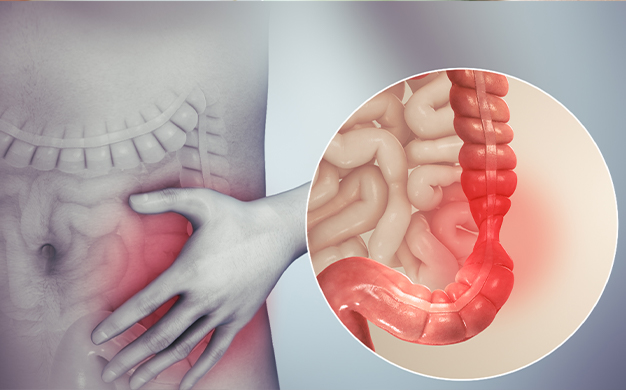Irritable bowel syndrome (IBS) is associated with the gastrointestinal tract. It is characterized by altered bowel habits associated with abdominal discomfort or pain. It is a common functional bowel disease that generates a significant health care burden and severely impairs the quality of a patient’s life. IBS is the most diagnosed gastrointestinal problem. The aetiology is poorly understood, and various factors are involved. Bacterial overgrowth, carbohydrate malabsorption, food sensitivity, and intestinal inflammation have been implicated in IBS. However, the symptoms from this mechanism consist of abdominal pain/discomfort, constipation, diarrhoea, or bloating. Not all symptoms are associated with the stomach, and fatigue is very common. And symptoms may be experienced occasionally by almost every individual. Buy gastro health medicine online at the best prices.
Symptoms all over the body
The most common symptoms associated with the condition are cramping, abdominal pain, constipation, diarrhoea, and bloating. IBS generates a great deal of distress s and discomfort, but it does not permanently harm the intestines and does not cause a serious medical condition.
IBS can affect up to one in five people at some point in their lives and significantly impacts one’s quality of life. Several research reports have established that IBS patients report non-bowel symptoms more frequently than other gastrointestinal and general patients. As per research studies, IBS patients experience various symptoms, including headaches, back pain, and frequent urination to are unusually common in patients with IBS compared to other people.
IBS is a functional bowel disorder defined based on the symptoms without detectable organic causes. Bad breath and fatigue were also found in research studies to be more common among IBS patients. Furthermore, many other symptoms have been reported to occur with unusually high frequency. Other non-gastrointestinal symptoms more common in irritable bowel syndrome patients include muscle ache, dizziness, constant tiredness, pain during intercourse, shortness of breath, sensitivity to heat or cold, jaw pain, sleeping difficulties, low sex drive, dry mouth, eye twitching, grinding your teeth, poor appetite etc.
Most people can control their symptoms with prescribed medications, diet, and stress management. For some, however, this stomach condition can be disabling. Patients may be unable to work, attend social events, or travel short distances.
Causes of IBS
More research is needed to discover any specific cause of IBS. It is believed that people who suffer from this condition have a colon (a large intestine) that is particularly allergic and reactive to certain food items and stress. The immune system, which fights off the infection, may also play a crucial role.
- Normal movement may not be present in the colon of an IBS patient. It can be spasmodic or can even stop functioning for a temporary period. S spasms are described as sudden strong muscle contractions that come and disappear.
- The lining of the colon, also known as the epithelium, regulates the flow of fluids in and out of the colon. In patients with IBS, the epithelium appears to function normally. However, when the contents inside the large intestine move too quickly, the colon cannot absorb fluids. This cause too much fluid in the stools. In other people, movement inside the colon is too slow, which causes the absorption of extra fluids resulting in constipation.
- Individuals may respond strongly to certain foods and stress that would not bother most people.
- Some recent research suggested that serotonin (a chemical produced in the body that transmits signals from one part to another. Most of these chemicals in your body are in the gastrointestinal tract and some in the brain. Cells that line inside the bowel carry the serotonin out of the gastrointestinal tract. However, people suffering from IBS have diminished receptor activity, causing abnormal levels to exist. This, in turn, causes problems with bowel movements.
- According to reports, IBS may be caused by a bacterial infection in the gastrointestinal tract. Research suggests that people who have gastroenteritis sometimes develop IBS.
- Some studies also found the very mild celiac disease in some people with symptoms like IBS. Those with celiac disease can’t digest gluten (found in wheat, barley, and rye. People with celiac disease can’t eat these foods without becoming very sick because their body’s defence system responds by damaging the small intestine (duodenum). Your doctor may perform a blood test to determine celiac disease.
Treatment of IBS
Medicines play a crucial role in the management of IBS. Our doctor may recommend supplements or laxatives for constipation or other medicines to decrease diarrhoea. An antispasmodic is commonly prescribed to control colon muscle spasms and reduce stomach pain. Also, sometimes antidepressants may be given to relieve symptoms. Some doctors may also prescribe medicines to relax the bladder and intestines muscles. Some medicines may contain sedatives, which can be addictive, so they need to be used under the supervision of a doctor. The physician recommends to buy gastrointestinal disease treatment online or over the counter to treat the condition timely.
It is important to follow your doctor’s advice with any medicine, even over the counter products such as laxatives and fibre supplements. Some complaints about abdominal bloating from increased fibre intake and laxatives can be habit-forming when used too frequently. Medications affect people differently. And no medicine or combination of medicine will work in all cases of IBS. You and your doctor will need to work together to find the best for you to control your symptoms. In general, combining medicines, diet, counselling, and support helps relieve symptoms faster. Buy gastro health drugs online to get rid of IBS symptoms.




